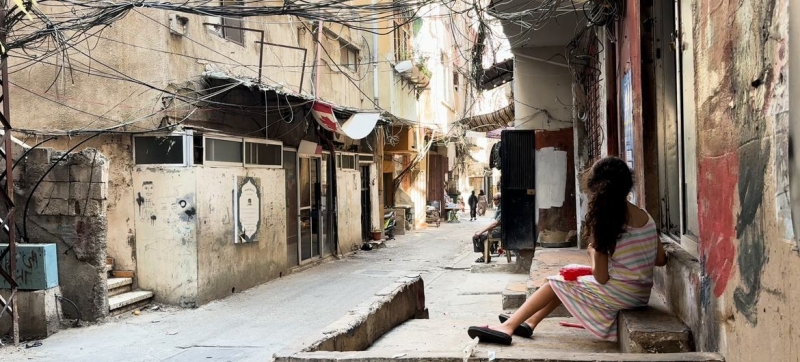
A girl on the steps of her house in Al-Biddawi camp. PLOT | Palestinian refugees in Lebanon have been waiting for peace for decades Humanitarian assistance
On the outskirts of Lebanon’s second largest city, Tripoli, lies the Al-Biddawi Palestinian refugee camp, which was established back in 1955. It then housed many of those expelled from the Upper Galilee and northern coastal cities during the so-called Nakba, the Palestinian catastrophe.
Over the years, violence in the region continued, and the camp’s population only grew. According to the United Nations Relief Agency for Palestine (UNRWA), more than 21,000 Palestinian refugees live in Al-Biddawi alongside many bereaved Lebanese and Syrian refugees.
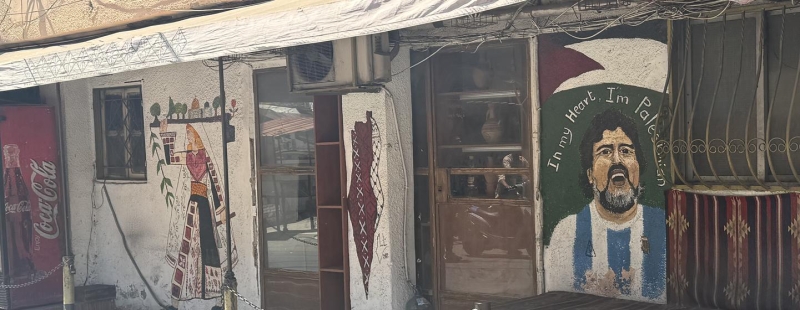
The main street of the Al-Biddawi camp.
As a result of the crisis that has engulfed Lebanon since late 2019, there are not enough jobs for the population of the camp and surrounding areas, and even employed residents are struggling to make ends meet.
“May God make it easier our suffering”
Ahmad (name changed – editor’s note) is an unemployed father of eight children, suffering from several chronic diseases.
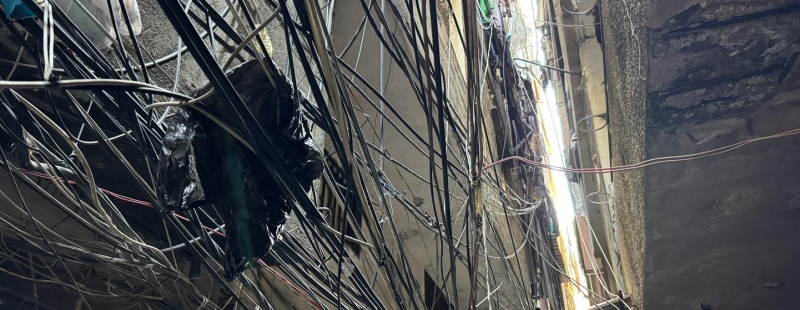
Wires through which rats get into apartments.
Too proud to give his real name, he told UN News that rats often climb the tangled electrical wires up to his studio apartment on the fourth floor. The windows are kept open for some refreshment in the scorching heat.
The family gets some electricity from a neighbor as a charity, but they don’t have a fan. An empty refrigerator demonstrates that apartment residents often go without dinner.
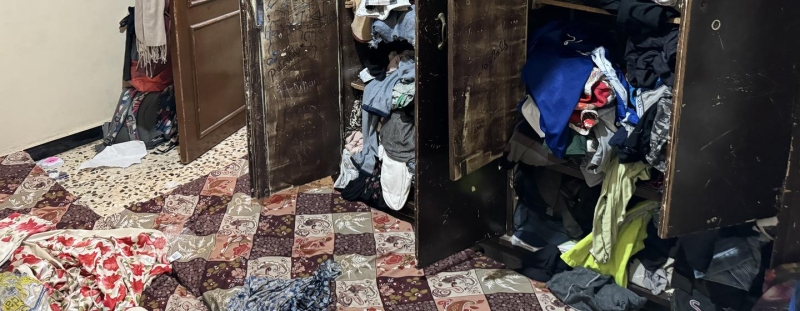
The only bedroom where Ahmad’s family sleeps.
Ahmad says he often can’t find anyone to lend him money, and only UNRWA’s help brings some relief. The agency provides $50 per child under 18 every 12 weeks, but even this small amount was reduced to $30 for a time due to funding issues.
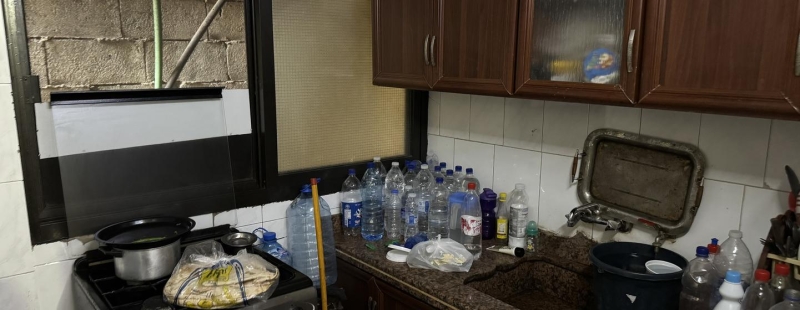
In the kitchen there are only empty bottles of water and bread.
“Home-cooked food costs at least one million liras ($11.17) a day,” Ahmad said. – My eldest son has a speech impediment. I tried to send him to learn a trade, but they laughed at him, so now he sits at home with no hope for the future. There are many people in this camp who live in similar conditions and are also too proud to ask for handouts. May God ease their suffering.”
The indispensable role of UNRWA
UNRWA is doing everything possible to support the Palestinian population in the Al-Biddawi camp and throughout the region, in accordance with the mandate given to it in 1949 by General Assembly resolution 302. The agency assumed responsibility for the vast majority of civilian affairs, offering education, health care, and social services.
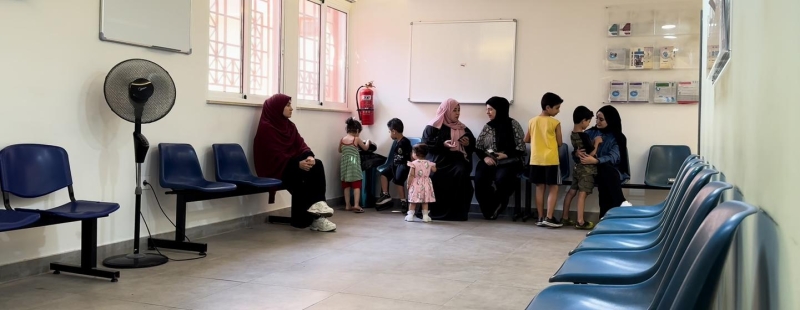
Women and children wait to be seen at an UNRWA health center.
The only UNRWA health facility in the camp employs 28 staff members who are themselves Palestine refugees. They serve between 400 and 500 patients every day, providing a range of services from dental care to general and specialist consultations.
UN News spoke with Dr. Hussam Guniem, Head of Health at UNRWA in northern Lebanon.
“If UNRWA were to disappear tomorrow, this camp would be a disaster because we have no other humanitarian agency that can provide the level of assistance that provided by UNRWA,” he said.
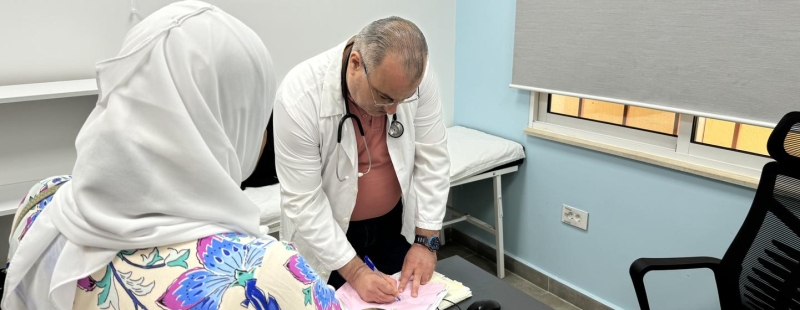
The head of the UNRWA medical center in Al-Baddawi with a patient.
Ghuniem explained that, in addition to services in the camp, UNRWA has contracts with seven Lebanese public and private hospitals, as well as the Palestinian Red Crescent hospital, thanks to which the agency covers most of the costs of expensive secondary and tertiary health care . However, most Palestinians struggle to contribute.
“The deteriorating economic situation has led to a lack of employment opportunities even for Lebanese citizens, so what can Palestinians who already are not allowed to work in more than 70 professions?” – Guniem asks a rhetorical question.
Refugees support refugees
“I am proud of the work I do here at UNRWA, which allows me to serve our Palestinian people,” he said. – The existence of UNRWA is the only evidence of our Nakba and our refugee status from 1948 to the present day. It will protect us and assist us until we can return to our land, God willing.”
“As a Palestinian refugee, I I can work for UNRWA and provide services to my people suffering from difficult economic and living conditions,” – confirmed Mohamed Badran, head of the UNRWA medical center in the Al-Biddawi camp. “As long as the issue of Palestine refugees exists, UNRWA must exist in parallel with it,” he emphasized.
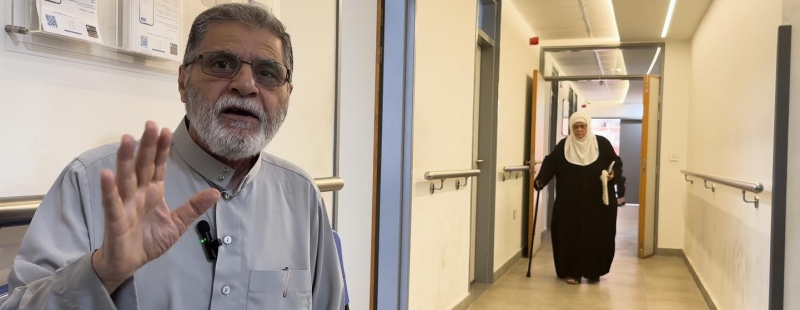
Abdul Sattar Hassan, 67, has been visiting the UNRWA medical center for more than 22 years.
67 year old Abdul Sattar Hasan – a descendant of refugees from the village of Sepphoris, northwest of Nazareth, has been visiting the medical center for more than 22 years.
A cancer survivor and sufferer from a number of chronic illnesses, he told the Service UN News reports that he takes comfort in the fact that everyone at the UNRWA medical center treats their patients with humanity.
“It’s not that they treat me well and they respect me more because I’m an older man,” he explained. – No, I noticed that they just treat all people that way. This is wonderful and humane. It seems that the employees here do not work just to receive a salary. They work hard to get the message across, and that’s something I respect and appreciate.”
